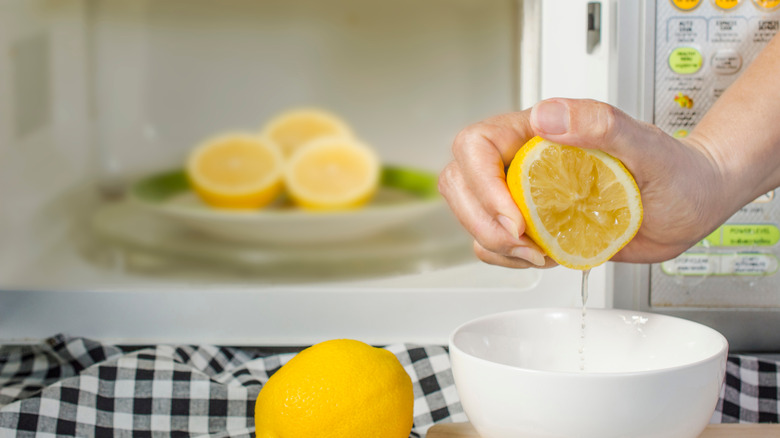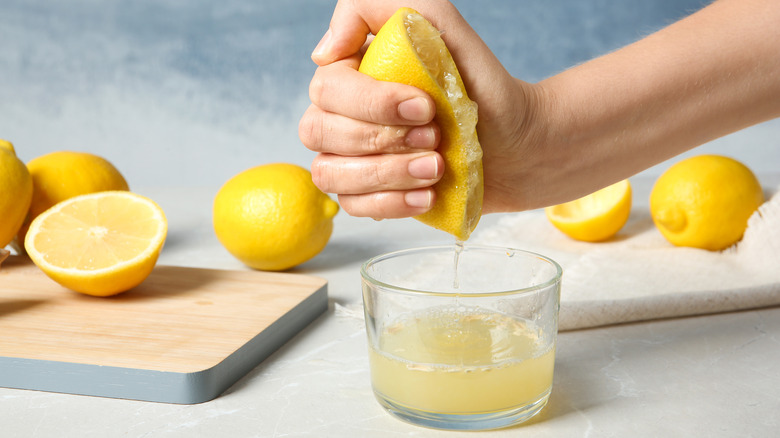Why You Should Microwave Lemons Before Juicing Them
Grocery stores are filled with products meant to make it easier to cook at home. Jarred minced garlic is one example of a convenient ingredient swap, and who out there can't admit to opting for a bag of pre-shredded cheese over a full block? Items such as these can definitely come in handy when you're looking to cut down on both time and messes –- though the downside of convenience in the kitchen is that it oftentimes comes at the expense of sacrificing flavor, as well. Take bottled lemon juice, which Bon Appétit describes as the "Kidz Bop version" of the fresher liquid that is extracted straight from the citrus itself because it's pretty similar but not quite the same. The outlet explains that fresh lemon juice has no preservatives and won't oxidize too quickly, so the flavor is much brighter and more vibrant in comparison to the more muted and toned-down bottled juice.
We're not sure about you, but that certainly makes us want to take the extra time to juice the yellow fruits by hand the next time we make a batch of homemade lemon bars or lemonade. However, with Cooking Light reporting that the average amount of juice in a medium-sized lemon ringing in at around 4 tablespoons, that can be a little easier said than done. Fortunately, there's a simple trick you can employ to increase the amount of juice each fruit produces, making the task easy, peasy lemon squeezy.
Microwaved lemons will produce significantly more juice
It's not often you hear about people nuking whole fruits in the microwave. In fact, Pure Wow advises against it to avoid creating a hot and gooey mess in your appliance. However, rules always have exceptions, and in the case of this particular food law, lemons are it. According to Taste of Home, microwaving whole lemons before juicing them is a clever restaurant trick that will increase the amount of citrusy liquid that comes out of each fruit, especially if they've been stored in the refrigerator. The Kitchen explains that the cold refrigerator leads the membranes that hold the juice in lemons to become firm. This means that they release less juice when squeezed. Therefore, the outlet explains, warming them in the microwave helps re-soften the membranes, allowing more juice to come out easier than if the lemon was juiced straight from the fridge. Additionally, rolling lemons on the countertop before cutting into it will help further break down the membranes and produce more juice, as well.
The internet has several suggestions for how long you should warm lemons up before juicing them, though The Kitchn's Kelli Foster found 20 seconds to be the ideal amount of time to zap the fruit in the microwave. In her test of the hack, lemons nuked for 20 seconds produced ¾ cup of juice, whereas lemons heated for only 10 seconds or not heated at all, both produced just ⅔ cup.

